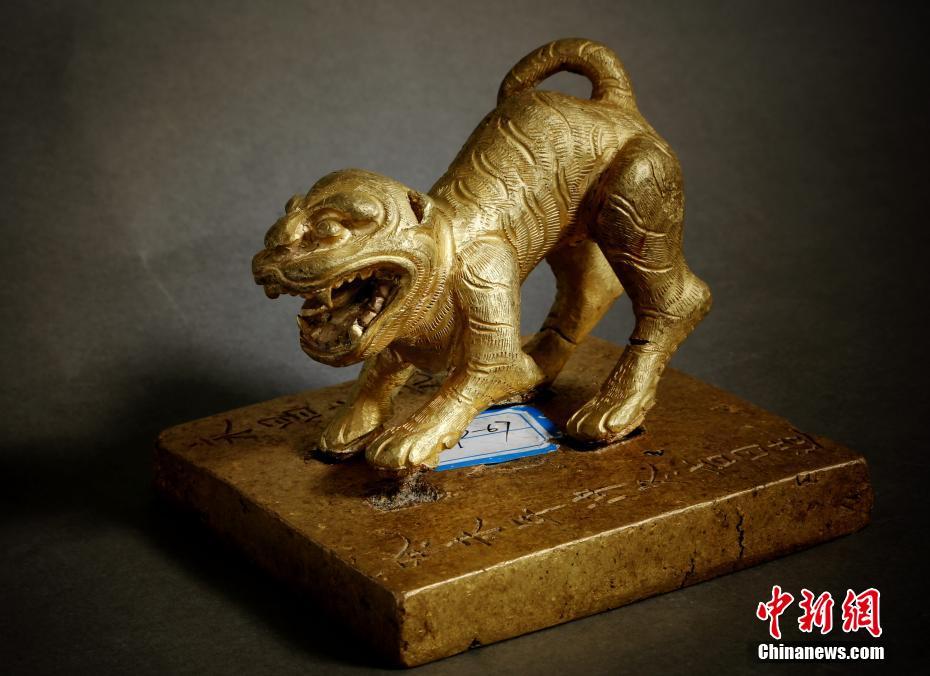Chinese archeologists discover underwater treasure
 |
|
A gold seal of Zhang Xianzhong, peasant uprising leader in Ming Dynasty. [File photo: China News Service] |
More than 10,000 gold and silver items that sank to the bottom of a river in southwest China’s Sichuan Province over 300 years ago have been recovered, archeologists said Monday.
The items included a large amount of gold, silver and bronze coins and jewelry as well as iron weapons such as swords, knifes and spears, said Gao Dalun, director of Sichuan Provincial Cultural Relics and Archeology Research Institute.
The characters carved in the gold and silver utensils are still clear and the embossed patterns on the jewelry show exquisite craftsmanship, archeologists said.
The treasure site, located in the intersection of Minjiang River and its branch Jinjiang River, is 50 kilometers away south of Chengdu, capital of Sichuan Province.
It is said that in 1646, peasant uprising leader Zhang Xianzhong was defeated in the area by Ming Dynasty (1368-1644) soldiers while attempting to transfer his treasure to the south. About 1,000 boats loaded with money and valuables sank during the skirmish.
“The objects have helped identify the area where the battle was fought and are direct evidence of this historical event,” said Wang Wei, a Chinese archaeologist.
Sichuan launched the exploration project in January when the dry season arrived. Several water pumps were used to drain water away day and night. Hundreds of meters of the river bed appeared after archaeologists dug five meters down, where they found the relics.
“The items are extremely valuable to science, history and art. They are of great significance for research into the political,economic, military and social lives of the Ming Dynasty,” said Li Boqian,an archaeologist from Peking University.
Archaeologists said the excavation will last until April and the team expects to unearth more items.
